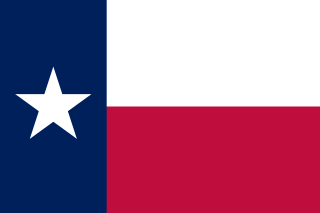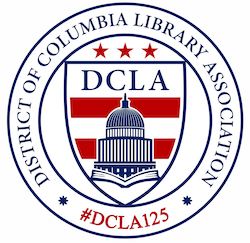Related Research Articles

The Republic of Texas was a sovereign state in North America that existed from March 2, 1836, to February 19, 1846, that bordered Mexico, the Republic of the Rio Grande in 1840, and the United States of America, although Mexico considered it a rebellious province during its entire existence despite the Treaties of Velasco of May 1836. It was bordered by Mexico to the west and southwest, the Gulf of Mexico to the southeast, the two U.S. states of Louisiana and Arkansas to the east and northeast, and United States territories encompassing parts of the current U.S. states of Oklahoma, Kansas, Colorado, Wyoming, and New Mexico to the north and west. The Anglo residents of the area and of the republic became known as Texians.

Texas is a state in the South Central region of the United States. At 268,596 square miles (695,660 km2), and with more than 30 million residents in 2022, it is the second-largest U.S. state by both area and population. Texas shares borders with the states of Louisiana to the east, Arkansas to the northeast, Oklahoma to the north, New Mexico to the west, and the Mexican states of Chihuahua, Coahuila, Nuevo León, and Tamaulipas to the south and southwest; and has a coastline with the Gulf of Mexico to the southeast.

Ardmore is the county seat of Carter County, Oklahoma, United States. According to the 2010 census, the city had a population of 24,283, with an estimated population of 24,698 in 2019. The Ardmore micropolitan statistical area had an estimated population of 48,491 in 2013. Ardmore is 90 miles (140 km) from both Oklahoma City and Dallas/Fort Worth, Texas, at the junction of Interstate 35 and U.S. Highway 70, and is generally considered the hub of the 13-county region of South Central Oklahoma, also known by state tourism pamphlets as "Chickasaw Country" and previously "Lake and Trail Country". It is also a part of the Texoma region. Ardmore is situated about 9 miles (14 km) south of the Arbuckle Mountains and is located at the eastern margin of the Healdton Basin, one of the most oil-rich regions of the United States.

The Daughters of the American Revolution (DAR) is a lineage-based membership service organization for women who are directly descended from a person involved in the United States' struggle for independence. A non-profit group, they promote education and patriotism. The organization's membership is limited to direct lineal descendants of soldiers or others of the Revolutionary period who aided the cause of independence; applicants must have reached 18 years of age and are reviewed at the chapter level for admission. The DAR has over 185,000 current members in the United States and other countries. Its motto is "God, Home, and Country".

The Ark-La-Tex is a socio-economic tri-state region where the Southern U.S. states of Arkansas, Louisiana, and Texas join together. The region contains portions of Northwest Louisiana, Northeast Texas, and South Arkansas as well as the extreme southeastern tip of Oklahoma, in McCurtain County, partly centered upon the Red River, which flows along the Texas–Oklahoma state line into Southwestern Arkansas and Northwest Louisiana.

The flags of the U.S. states, territories, and the District of Columbia exhibit a variety of regional influences and local histories, as well as different styles and design principles. Modern U.S. state flags date from the turn of the 20th century, when states considered distinctive symbols for the 1893 World's Columbian Exposition in Chicago, Illinois. Most U.S. state flags were designed and adopted between 1893 and World War I.
The American Library Association (ALA) is a nonprofit organization based in the United States that promotes libraries and library education internationally. It is the oldest and largest library association in the world, with 49,727 members as of 2021.

The West South Central states, colloquially known as the South Central states, is a region of the United States defined by the U.S. Census Bureau as covering four states: Arkansas, Louisiana, Oklahoma, and Texas. The West South Central or South Central region is located within the Southern United States and Gulf Coast regions, bordering the Mountain states and Midwestern U.S. regions to its north and west. The Gulf of Mexico is to the south of the region. Houston is the South Central's largest city, and the Dallas–Fort Worth–Arlington metropolitan statistical area is the region's largest metropolis.

Arnulfo Duenes Trejo was a writer and Professor of Library Science at the University of Arizona. He was a leader in the movement to increase library collections of Latino literature and Spanish-language materials in the United States. He was also instrumental in efforts to train more Latino and Spanish-speaking people as professional librarians.

Robert Sidney Martin, Ph.D. is an American librarian, archivist, administrator, and educator. He is Professor Emeritus, School of Library and Information Studies, Texas Woman’s University, where he was the Lillian M. Bradshaw Endowed Chair until his retirement in 2008.

Michael Abraham Shadid was a Lebanese physician who founded the first medical cooperative in Elk City, Oklahoma, in 1931. He was the first president of the Cooperative Health Federation of America, and an advocate for cooperative health care and preventive medicine.
Cain City is a ghost town founded in 1915, 4 miles (6.4 km) southeast of Fredericksburg in Gillespie County, in the U.S. state of Texas. It was established to be a station stop of the Fredericksburg and Northern Railway Company, of which the city's namesake Charlie Cain was a leading fundraiser. The town suffered an economic downturn within a decade of being founded.
The Southeastern Library Association (SELA) is an organization that collaborates with different library associations within the Southeastern United States, including Alabama, Arkansas, Florida, Georgia, Kentucky, Louisiana, Mississippi, North Carolina, South Carolina, Tennessee, Virginia, and West Virginia.

Essae Martha Culver was an American librarian, the first state librarian of Louisiana and president of the American Library Association.
The Association of Specialized, Government, and Cooperative Library Agencies (ASGCLA) is a defunct division of the American Library Association (ALA), which is the oldest and largest library association in the world. The ALA Council in June 2020 voted to dissolve ASGCLA and assign its components to other units within ALA and it ceased to exist on September 1, 2020.

Karl Hoblitzelle was an American theater owner, real estate investor, and philanthropist. He was the co-founder of the Interstate Theaters Company, a chain of vaudeville theaters, now a subsidiary of The Walt Disney Company. He was the first theater owner to add air conditioning to movie theaters in the United States, and the first to add sound in the Southwest. He also helped support the construction of the University of Texas Southwestern Medical Center.

Maud Durlin Sullivan was an American librarian. She is most well known for her work as the librarian of the El Paso Public Library.

The New Mexico Library Association (NMLA) is a professional organization for New Mexico's librarians and library workers. It is headquartered in Albuquerque, New Mexico. It was officially founded on February 3, 1924. Evelyn Shuler, director of Raton Public Library and director for the ALA United War Work Campaign in New Mexico, was the organization's first president.

Eugene Campbell Barker was an American historian at the University of Texas, the managing director of the Texas State Historical Association, and the editor of the Southwestern Historical Quarterly. He chaired the history department while soliciting gifts to the university, which he used to build a collection of archives and artifacts. In 1950, the university dedicated the Eugene C. Barker History Center as a repository for his collections. These collections are an important part of the Dolph Briscoe Center for American History at the University of Texas.

The District of Columbia Library Association (DCLA) is a professional organization for District of Columbia's librarians and library workers. It is headquartered in Washington, DC. It was founded on June 15, 1894 as the Library Association of Washington City. DCLA's first president was Ainsworth Spofford who was also Librarian of Congress; most of DCLA's initial monthly meetings were held in the Library of Congress. It changed its name to District of Columbia Library Association in March 1901 and became a chapter of the American Library Association on June 28, 1922.
References
- 1 2 3 "Southwestern Library Association: An Inventory of Southwestern Library Association Records at the Texas State Archives, 1920-1989, undated, bulk 1922-1983". University of Texas Libraries. 1981-08-21. Retrieved 2020-02-08.
- 1 2 "Texas Library Champions - the First 100 Years" (PDF). Texas Library Journal. 78 (1): 2. Spring 2002. Retrieved 8 February 2020.
- ↑ Duggan, Maryann (January 5, 1972). "S.L.I.C.E. Southwestern Library Interstate Cooperative Endeavor, First Quarterly Report for the Period 1 October-31 December, 1971". ERIC. Retrieved 9 February 2020.